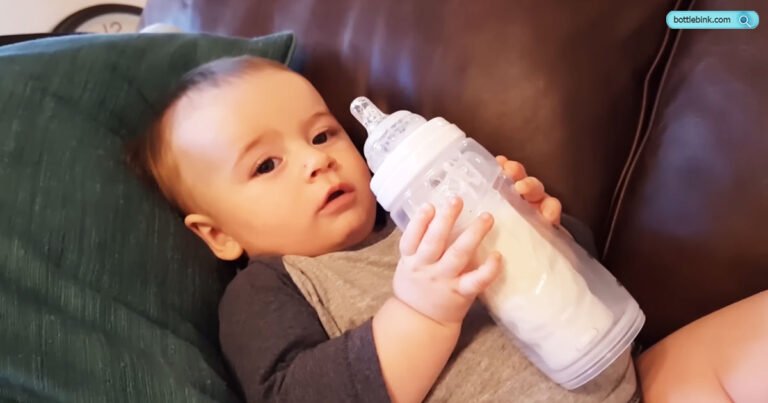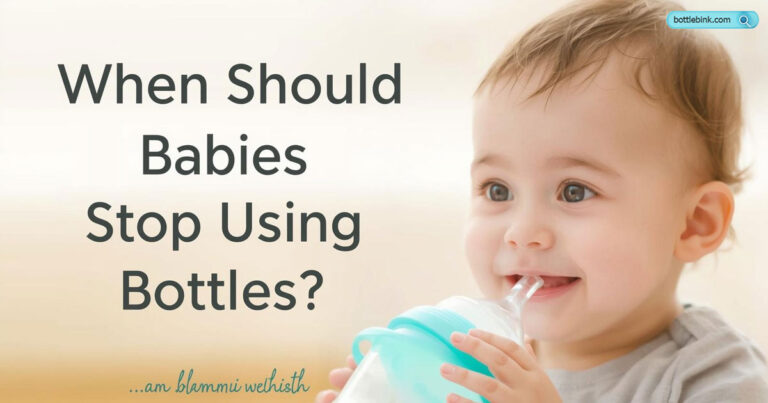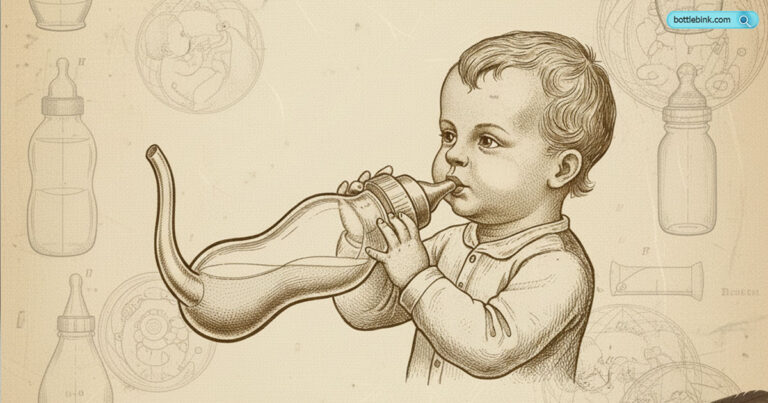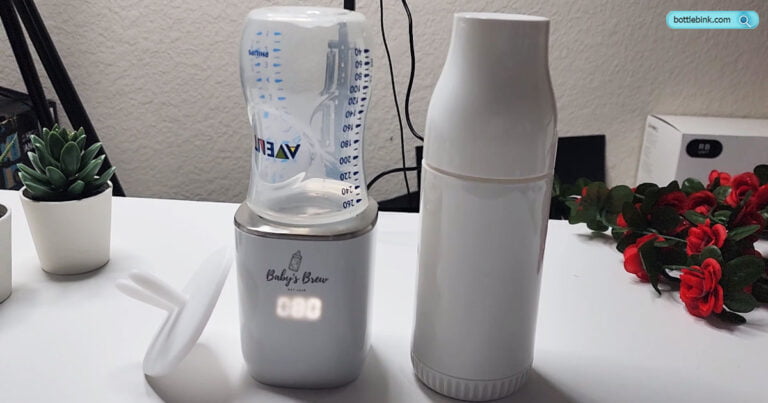Are Glass Baby Bottles Better Than Plastic? Discover the Health Benefits.
Glass baby bottles are better for babies due to their non-toxic and chemical-free composition, providing a safe and healthy option for feeding. When it comes to choosing baby bottles, the safety and well-being of your baby are paramount.
Glass bottles offer numerous advantages, including eco-friendliness, chemical-free composition, and taste neutrality, while providing a durable and safe option for feeding. They are resistant to chemicals and do not leach harmful substances into the milk, making them a more suitable and healthier choice for your baby.
Additionally, glass bottles are easy to clean and are free from harmful chemicals commonly found in plastic bottles. While plastic bottles may not last as long as glass, the safety and durability of glass make them the clear winner for your baby’s feeding needs.
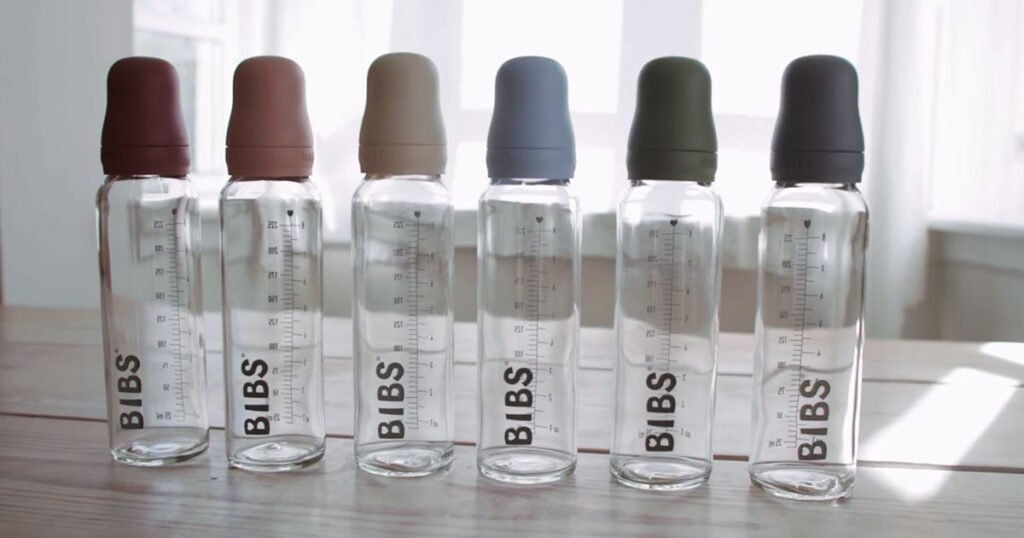
Benefits Of Glass Baby Bottles
Glass baby bottles offer several benefits over plastic bottles. They are non-toxic and free from harmful chemicals, making them a healthier option for babies. Glass is also more resistant to degradation and leeching, ensuring that no harmful substances enter the milk.
Health Benefits
Glass baby bottles are an excellent choice for parents who prioritize their baby’s health. Unlike plastic bottles, glass bottles are non-toxic and do not contain harmful chemicals. This means that you can feed your little one without worrying about chemicals or microplastics leaching into the milk.
Glass is also less porous than plastic, which means it does not absorb or retain odors or flavors. This ensures that your baby’s milk or formula remains fresh and uncontaminated with any unwanted tastes or smells.
Furthermore, glass resists chemical and acid degradation, making it a safe and hygienic option. You can trust that glass baby bottles will maintain the purity and quality of your baby’s food, even when stored for long periods of time.
Environmental Benefits
When it comes to sustainability, glass baby bottles are a superior choice. Glass is recyclable and can be reused countless times. By opting for glass bottles, you’re reducing your carbon footprint and contributing to a greener future for your child.
Plastic bottles, on the other hand, contribute to the growing problem of plastic waste. They often end up in landfills or pollute our oceans, taking hundreds of years to decompose. By choosing glass bottles, you’re making a conscious decision to reduce plastic waste and protect our planet for future generations.
In conclusion, the benefits of glass baby bottles are undeniable. They offer numerous health benefits by avoiding harmful chemicals and microplastics. Plus, they are environmentally friendly and can be reused indefinitely. When it comes to your baby’s well-being and the well-being of our planet, glass baby bottles truly stand out as the better choice.
Drawbacks Of Glass Baby Bottles
Are glass baby bottles better? Glass bottles are considered healthier because they are non-toxic, resistant to chemicals, and do not leach harmful substances into milk. Unlike plastic bottles, glass bottles are not porous and provide a safer option for babies.
Fragility Concerns
One downside of glass baby bottles is their fragility. Glass bottles are susceptible to shattering if dropped, posing a safety hazard for both the infant and the caretaker. Extra caution and supervision are essential when using glass bottles to prevent accidents. Additionally, the fragility of glass bottles may result in a higher replacement cost compared to more durable materials.
Weight And Handling
The weight of glass baby bottles can make them heavier to carry and handle compared to plastic alternatives. This can be a drawback when it comes to portability and ease of use, especially for parents on the go. Careful handling is necessary to prevent accidents and breakage, and some parents may find the added weight cumbersome during feeding times.
Choosing The Right Glass Baby Bottles
Glass baby bottles are gaining popularity as a safer and healthier alternative to plastic bottles due to their non-toxic and chemical-free composition. When it comes to choosing the right glass baby bottles, considering the materials and safety features is crucial for the well-being of your little one.
Materials And Composition
Glass baby bottles, made from high-quality borosilicate glass, are durable and resistant to temperature changes, making them a safe choice for feeding infants. This type of glass is known for its strength and can withstand accidental drops without breaking, ensuring long-lasting usability. Furthermore, glass does not leach chemicals and is a sustainable and eco-friendly option, reducing the environmental impact of baby care products.
Safety Features
Opt for glass bottles that feature protective silicone sleeves to provide a secure grip and added impact resistance, minimizing the risk of breakage. Additionally, look for bottles with anti-colic venting systems or natural response nipples to aid in smoother, uninterrupted feeding experiences for your baby. Ensuring the absence of harmful chemicals such as BPA or phthalates is vital to safeguard your child’s health and well-being.
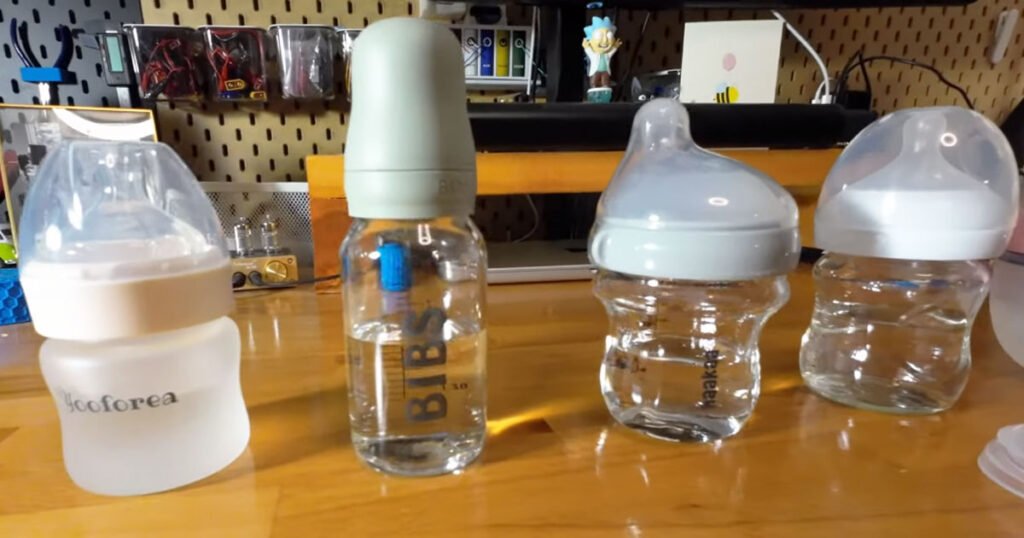
Maintaining Glass Baby Bottles
When it comes to maintaining glass baby bottles, they are easy to clean and sterilize, ensuring a safe and hygienic feeding experience. The non-toxic nature of glass makes it a healthier option, as it doesn’t leach harmful chemicals or microplastics.
Glass baby bottles may be a better choice for your baby’s health and safety.
Cleaning And Sterilization
When it comes to maintaining glass baby bottles, cleaning and sterilization are essential. Cleaning glass bottles is a straightforward process that involves a few simple steps. Start by disassembling the bottle, separating the nipple, collar, and cap. Rinse all the parts with warm water to remove any leftover milk or residue.
After rinsing, it’s time to clean the bottle thoroughly. Use a bottle brush and mild dish soap to scrub the inside and outside of the bottle. Pay special attention to the bottom and sides where formula or breast milk residue can accumulate.
Rinse the bottle again with warm water to ensure all soap is removed. Next, let’s talk about sterilization. Sterilizing glass bottles helps to kill harmful bacteria and keep your baby safe.
There are several methods you can use for sterilization. One common method is boiling. Place the bottle and its parts in a pot of boiling water for about 5 minutes. Remove them from the water using tongs and let them air dry or dry them with a clean paper towel.
Another option is to use a sterilizing solution or machine. These products are designed specifically for baby bottle sterilization and are easy to use. Simply follow the instructions provided by the manufacturer to ensure proper sterilization.
Storage And Handling
Proper storage and handling of glass baby bottles are also crucial for maintaining their integrity. Here are a few tips to keep in mind:
– After cleaning and sterilizing the bottles, store them in a clean and dry place. Avoid placing them near chemicals or harsh cleaning agents that could potentially damage the glass.
– When transporting glass bottles, consider using a bottle bag or wrap them in a soft cloth to protect them from accidental bumps or scratches.
– Avoid placing hot liquids directly into a cold glass bottle or vice versa. Extreme temperature changes can cause the glass to crack or shatter.
– Check the bottles periodically for any signs of wear or damage. If you notice any cracks or chips, it’s best to replace the bottle to ensure your baby’s safety.
In conclusion, maintaining glass baby bottles is a straightforward process that involves proper cleaning, sterilization, storage, and handling. By following these guidelines, you can ensure that your glass baby bottles remain safe and in good condition for your little one’s use.
Conclusion: Glass Baby Bottles Vs. Other Options
Glass baby bottles are a healthier option due to their resistance to chemicals and acid degradation, preventing harmful substances from leaking into the milk. Unlike plastic, glass bottles are non-toxic, free from harmful chemicals, and have high resistance to leeching, making them a safer choice for babies.
Comparative Analysis
When it comes to choosing the best option for your baby’s feeding needs, it’s important to consider the comparative analysis between glass baby bottles and other alternatives. Let’s take a closer look at the advantages and disadvantages of each:
| Option | Advantages | Disadvantages |
| Glass Baby Bottles | Non-toxic and free from harmful chemicals Resistant to leaching Durable and long-lasting Can be easily sterilized and cleaned | Heavier and more prone to breaking May require extra caution and care |
| Plastic Baby Bottles | Lightweight and easy to handle Less prone to breaking Available in a wide range of designs Often more affordable | Potential leaching of harmful chemicals May discolor or retain odors over time Less durable and may need frequent replacement Require careful cleaning and sterilization |
Final Considerations
Based on the comparative analysis, it’s clear that glass baby bottles offer numerous advantages over other options. The non-toxic and chemical-free composition of glass ensures that there are no harmful substances leaching into your baby’s milk. Glass is also more durable and resistant to breaking compared to plastic, making it a long-lasting choice for feeding your little one.
Although glass baby bottles may be heavier and require extra caution, their benefits outweigh the disadvantages. It’s important to prioritize your baby’s health and safety by opting for glass bottles.
Additionally, glass baby bottles can be easily sterilized and cleaned, ensuring a hygienic feeding experience for your baby. There are also various accessories available, such as silicone sleeves, to enhance the durability and grip of glass bottles.
In conclusion, glass baby bottles are the better choice when it comes to your baby’s feeding needs. They provide a safe and reliable option for nourishing your little one. Invest in the health and well-being of your baby by choosing glass baby bottles.
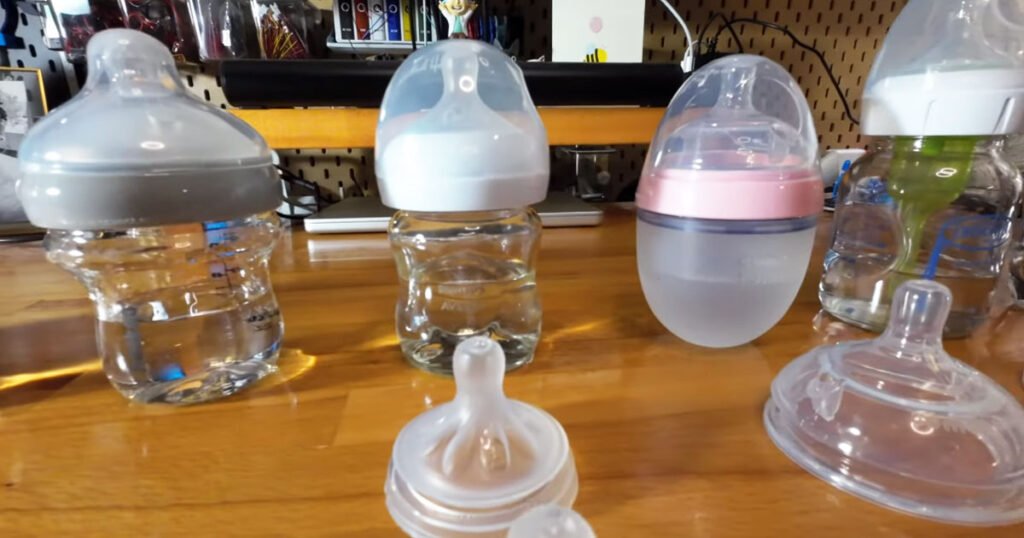
FAQs On Are Glass Baby Bottles Better
Are Glass Baby Bottles Healthier?
Glass baby bottles are healthier because they are non-toxic and don’t leach harmful chemicals into the milk. Glass is also resistant to acid degradation and doesn’t contain microplastics. Plastic bottles, on the other hand, may leach chemicals if not made from BPA-free material.
Are Glass Bottles Really Better?
Glass bottles are better because they are non-toxic, free from harmful chemicals, and less porous than plastic. Glass resists chemicals and acid degradation, minimizing the risk of harmful substances leaching into the milk. Additionally, glass bottles are recyclable and do not contribute to environmental pollution.
Is Glass Or Plastic Better For Babies?
Glass baby bottles are better for babies because they are non-toxic and resistant to chemicals, ensuring no harmful substances leak into the milk. Plastic bottles may leach chemicals if not made from BPA-free material. Glass bottles are also recyclable but need to be handled with care due to their weight and fragility.
What Are The Pros And Cons Of Glass Bottles?
Glass bottles offer numerous advantages such as being eco-friendly, chemical-free, durable, and customizable. They resist chemicals and do not leach harmful substances into the liquid. However, they are also fragile, heavier, have limited insulation, higher upfront cost, and limited availability.
Conclusion
To sum up, glass baby bottles have numerous advantages over plastic ones. They are non-toxic, resistant to chemicals and acid degradation, and have a lower risk of harmful chemicals leaching into the milk. Glass is also less porous and easier to clean.
While glass bottles may be heavier and more prone to breaking, their overall safety and durability make them a clear winner for parents who prioritize their baby’s health. Consider making the switch to glass baby bottles for a safer and healthier feeding experience.

